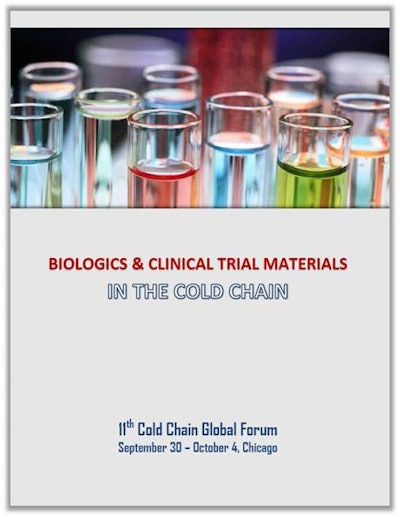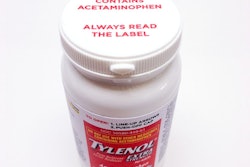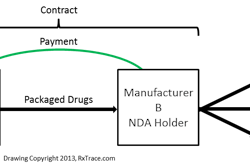The 11th Cold Chain Global Forum will take place Sept. 30-Oct. 4 in Chicago. This article from IQPC addresses “Biologics and clinical trial materials in the cold chain,” with input from the following industry experts:
• Karl Kussow, Manager of Quality & Validation, FedEx Custom Critical
• Bob Seevers, Principal Research Scientist, Eli Lilly
• Kaley Parkinson, Supply Chain Technology Services, Rehrig Pacific
• Mary Foster, Chair, Expert Committee on Packaging, Storage & Distribution, USP
• Michael Burdick, Special Agent, Security & Hazardous Materials, FAA
• Berkley Stafford, Head of Healthcare Sales, Envirotainer
• Ben VanderPlas, Global Product Manager for ISC Labs, Sonoco ThermoSafe
Karl Kussow, Manager of Quality & Validation, FedEx Custom Critical, on the similarities between biologics & clinical trial materials:
“Biologics and clinical trials have in common their frequent need for closely controlled temperature ranges and no tolerance for any temperature excursion. They are also often being transported internationally. Systems that provide improved visibility and control, even during international clearance operations are important. Sense Aware and Shipment Watch are two such services that provide the kind of visibility often needed by these types of products. Shipment Watch is a device monitoring service that utilizes Sense Aware devices.”
Bob Seevers, Principal Research Scientist, Eli Lilly, on dealing with the lack of set standards:
“We are looking to come up with a standard data set that we can have available at the time we submit our biomolecules for marketing approval. This is challenging because there is not a regulatory document available that provides a government approved set of expectations. The closest thing to this is PDA Technical Report 53 Guidance for Industry: Stability Testing to Support Distribution of New Drug Products (2011), which provides recommendations of the type of testing that should be considered.
“The fact is that testing that was once viewed as strictly for GMP purposes has come to be expected to be reported on and reviewed in marketing applications. We are looking into which tests to run and also at the timing to ensure that the results are available in time for submission of the marketing application. For clinical trial materials we are doing the same thing, but with the added complication that manufacturing processes and formulations change during the development process. Further, the amount of data available will change and increase as a biologic passes through the development process. And, sadly, many molecules will not make it to the market; we need to determine the correct investment in testing to support distribution during different phases of development.”
Kaley Parkinson, Supply Chain Technology Services, Rehrig Pacific, on handling increased costs:
“We are designing built-in technologies and solutions to proven transportation assets that meet the needs of this growth market. Our goal is to limit the increased costs associated with the regulatory compliance and information burdens inherently involved in this business. By providing more intelligent transportation packaging we can kill two birds with one stone, meet the information constraints, and significantly limit the cost through better management of transportation assets.”
Michael Burdick, Special Agent, FAA, on the regulatory challenges of Biologics:
“Some ‘biologics’ are additionally regulated by CDC or other federal and state agencies, which necessitates a higher security standard for preparing and tending your commodity into the transportation chain.”
Mary Foster, Chair of USP Committee on Packaging, Storage & Distribution, on the regulatory challenges of transporting clinical trial materials:
“I think our committee would say the biggest challenge we see with the clinical trial material is that from the very onset of manufacturing, the very first manufacturing piece through to the end product for the clinical trial, there needs to be a process for managing transportation from the very beginning. It all gets down to product management at the end of the day and if a firm can specify what API, what dosage form, what package style, they can also specify from the onset the transportation program and build that into the whole clinical trial program so that when the product starts to move around the country and other countries the program is known. It can be very cost-efficient because you get time to study it.
“Most companies have to deal with a virtual program because they can’t put an employee in every entity along the supply chain. So understanding that piece as well in the project plan becomes critical for the commercial product as well as the clinical trial material.
“I think at the end of the day the biggest regulatory challenge with transporting the clinical trial material is working with product management from the very beginning of the trial to the very end. Making sure you have the right strategy, the right technological advances, and people in place to make it cost-effective.”
Berkley Stafford, Head of Healthcare Sales, Envirotainer., on strategic investments:
“Envirotainer strives to do their part as a strategic partner to healthcare manufacturers and logistics providers. We have made significant investments in several key areas including our container fleet and global service network.
“We have the world’s largest fleet of temperature-controlled air cargo containers and are continuing to invest in manufacturing of our state-of-the-art technology to meet demand. Both dry ice cooling and electric heating and cooling continue to grow across the increased number of temperature-sensitive products and geographical regions. Each technology type, with its own specific design that meets the various demands of the healthcare logistics industry.
“We also continue to invest in our robust network of stations each year to increase accessibility of the Envirotainer containers. This allows our partners more convenient access and reduced costs, which subsequently means our healthcare manufacturers realize quicker speed to market and more efficient and affordable supply chain costs.”
Ben VanderPlas, Global Product Manager for ISC Labs, Sonoco ThermoSafe, on satisfying new global demand:
“To accommodate expected growth in shipping biologics and clinical trial materials, Sonoco ThermoSafe has approached this opportunity two-fold; manufacturing and distribution footprint and new technologies. Sonoco ThermoSafe is a partner with and provider of temperature assurance packaging to many of the top pharmaceutical and biotech companies. Working with our clients we continue to assess our global footprint to fulfill the evolving needs of the market. Focusing on our manufacturing and distribution network has been necessary to best accommodate the increase in supply chain complexities and satisfy the global demand for temperature-controlled packaging. Sonoco ThermoSafe has the most comprehensive manufacturing footprint in North America. In 2008, warehousing and distribution was established in Singapore. In 2009, a manufacturing and distribution facility was opened in Ireland. In 2013, a second European manufacturing and distribution site opened in Germany and warehousing and distribution was established in Brazil. Additional opportunities are continuously analyzed as Sonoco has manufacturing locations and warehousing capabilities throughout North America, South America, Europe, and Asia, with facilities in more than 30 countries.”






















